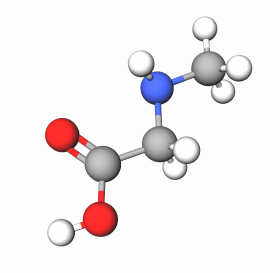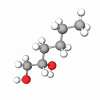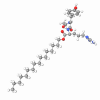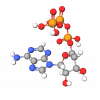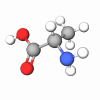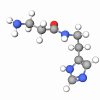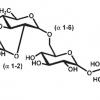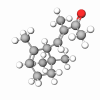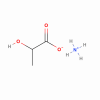Sarcosine (N-methyl glycine) is a natural amino acid found in human body tissues and ubiquitous in raw food such as egg yolks, meat, vegetables, and legume seeds. It has a sweet taste, is water soluble, and is a safe (food-grade) ingredient without any documented case of skin sensitization (allergic reaction).
It reduces sebum production and mattifies the skin, suitable for normal to oily skin care applications. N-methyl glycine is a perfect ingredient for treating seborrhea-induced skin and scalp conditions, including acne, enlarged pores, and oily shine.
Mechanism of action
Applied topically, Sarcosine inhibits an enzyme (5 alpha-reductase) responsible for androgen hormone metabolism (converts testosterone to dihydrotestosterone or DHT), which in its turn promotes sebum production. Reducing sebum production, N-methyl glycine tightens pores, mattifies and eliminates oily shine, and improves overall skin texture and condition. In addition, Sarcosine can be quickly converted into glycine, an amino acid that can serve as a natural moisturizing factor (NMF) or a building block for collagen production.
